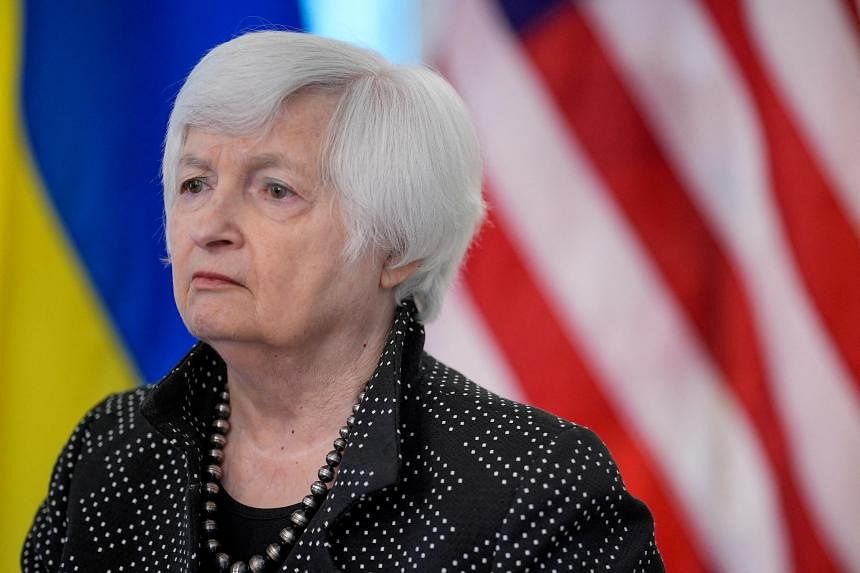WASHINGTON - The US and its Group of Seven (G-7) allies are continuing to explore a range of possibilities to unlock the value of nearly US$300 billion (S$400 billion) in frozen Russian assets to aid Ukraine, US Treasury Secretary Janet Yellen said on April 16.
Dr Yellen said the US and the G-7 were absolutely committed to Ukraine’s support, and she urged Congress to approve urgently needed military and budgetary support.
“This is a humanitarian and moral imperative, and also an economic war, given the war’s significant negative impact on economies around the world,” Dr Yellen said, in a news conference on the sidelines of the spring meetings of the International Monetary Fund and World Bank in Washington.
Dr Yellen said she feared Russia could be emboldened by the domestic debate in the US and elsewhere over continued aid to Ukraine.
“I do fear that Russia is beginning to see signs that the US and our allies are tiring, or finding it more difficult to find ways to support Ukraine, and that gives them hope that they can outlast us and wait for our resolve to crumble,” she said.
But Ukraine needs ongoing streams of support, and that was driving the quest to monetise the frozen Russian assets, she added.
Dr Yellen said she had engaged in many conversations about the issue and it would be discussed at a meeting of Group of Seven (G-7) advanced economies on April 17.
She said a series of possibilities were under discussion, from seizing assets outright to using them as collateral, noting that Washington was “very supportive” of moves by the European Union to segregate the interest income from the immobilised assets.
A senior Treasury official said no options had been taken off the table but noted that Ukraine also wouldn’t have the capacity to absorb the full amount at once, even if all the frozen assets were seized.
Dr Yellen said Western officials were evaluating the risks involved in any such move, including Russian threats of retaliation, but expressed confidence they could be mitigated.
Discussions would continue this week, the Treasury official said, but no major milestones were expected. The official declined to say which option was more likely, noting that the ultimate decision would be made by G-7 leaders.
The official noted that past actions - including the freezing of the assets in the first place - had also appeared unlikely in the months before they were implemented. REUTERS

